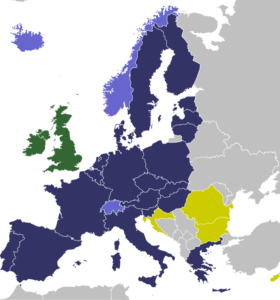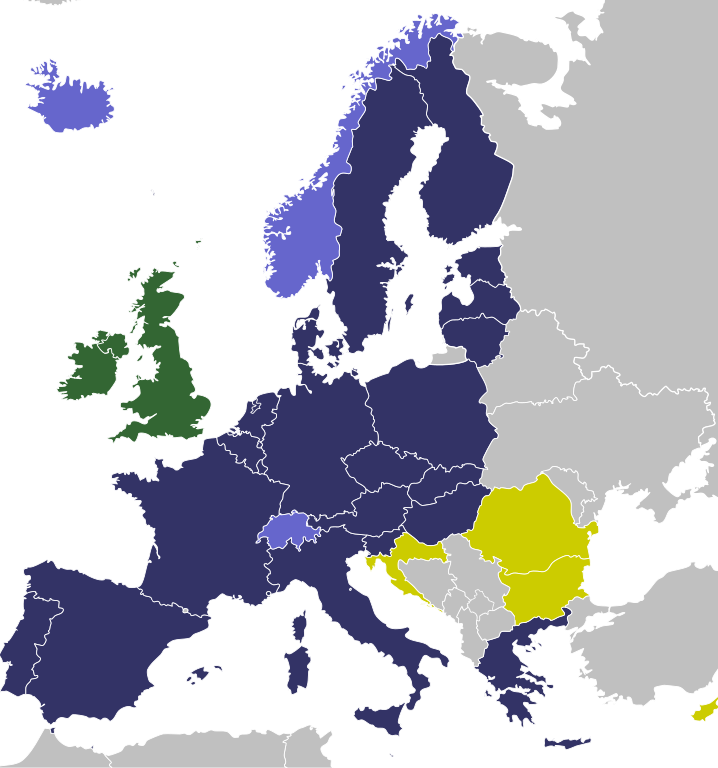 The International Air Transport Association (IATA) is urging governments to consider the “financial frailty” of airlines and be fully prepared to provide support to buffer the economic dislocation that any travel restrictions imposed will cause.
The International Air Transport Association (IATA) is urging governments to consider the “financial frailty” of airlines and be fully prepared to provide support to buffer the economic dislocation that any travel restrictions imposed will cause.
IATA made the statement on March 12 in response to the US government’s banning of non-US citizens, and individuals who are not legal permanent residents of the US, who have been in the Schengen Area in the past 14 days from entry into the United States.
The Schengen Area is an area comprising 26 European states that have officially abolished all passport and all other types of border control at their mutual borders.
IATA said the association and its members continue to support governments in their efforts to contain the spread of COVID-19, adding that at this time of extreme pressure on the industry, governments should:
- Prepare for the broad economic consequences of these actions,
- Respond quickly to the financial frailty of airlines, and
- Follow WHO (World Health Organization) recommendations.
“These are extraordinary times and governments are taking unprecedented measures. Safety—including public health—is always a top priority. Airlines are complying with these requirements. Governments must also recognize that airlines—employing some 2.7 million people—are under extreme financial and operational pressures. They need support,” said Alexandre de Juniac, IATA’s director general and CEO.
When taking such measures, IATA urged governments to prepare for the adverse economic impact that they will cause. “The dimensions of the US-Europe market are enormous.”
IATA noted that in 2019, a total of around 200,000 flights were scheduled between the United States and the Schengen Area, equivalent to around 550 flights per day. There were around 46 million passengers (roughly equivalent to 125,000 travelers every day).
The economic fallout of the travel restrictions will be broad, said IATA.
“Governments must impose the measures they consider necessary to contain the virus. And they must be fully prepared to provide support to buffer the economic dislocation that this will cause. In normal times, air transport is a catalyst for economic growth and development. Suspending travel on such a broad scale will create negative consequences across the economy. Governments must recognize this and be ready to support,” said de Juniac.
IATA said airlines are already struggling with the severe impact that the COVID-19 crisis has had on their business. On March 5, 2020, IATA estimated that the crisis could wipe out some US$113 billion of revenue. That scenario did not include such severe measures as the US and other governments (including Israel, Kuwait, and Spain) have since put in place.
The US measures will add to this financial pressure, it warned. The total value of the US-Schengen market in 2019 was $20.6 billion. The markets facing the heaviest impact are US-Germany ($4 billion), US-France ($3.5 billion) and US-Italy ($2.9 billion).
“This will create enormous cash-flow pressures for airlines. We have already seen Flybe go under. And this latest blow could push others in the same direction,” de Juniac said.
“Airlines will need emergency measures to get through this crisis. Governments should be looking at all possible means to assist the industry through these extreme circumstances. Extending lines of credit, reducing infrastructure costs, lightening the tax burden are all measures that governments will need to explore. Air transport is vital, but without a lifeline from governments we will have a sectoral financial crisis piled on top of the public health emergency,” added de Juniac.
He urged the US and other governments that have placed travel restrictions to follow the WHO guidance.
While health and safety are the top priorities for governments and the air transport sector, “the effectiveness and necessity of travel restrictions must be continuously reviewed,” said de Juniac.
The WHO continues to advise against the application of travel or trade restrictions to countries experiencing outbreaks. On February 29, 2020 the WHO issued revised guidance which included the following:
“Travel measures that significantly interfere with international traffic may only be justified at the beginning of an outbreak, as they may allow countries to gain time, even if only a few days, to rapidly implement effective preparedness measures. Such restrictions must be based on a careful risk assessment, be proportionate to the public health risk, be short in duration, and be reconsidered regularly as the situation evolves.”
Photo: Schengenzone.svg





